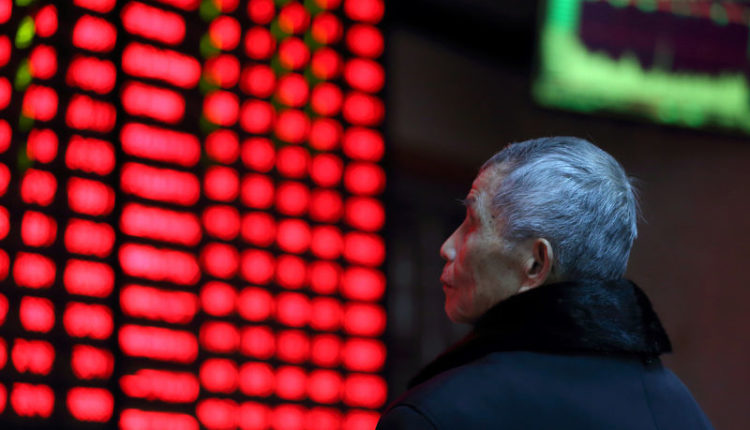Asian shares tick up, sterling off five-month peak as crunch Brexit talks eyed
By Swati Pandey and Hideyuki Sano
SYDNEY/TOKYO (Reuters) – Asian shares inched higher while sterling came off five-month highs in volatile trade on Wednesday as investors looked to whether Britain can secure a deal to avoid a disorderly exit from the European Union.
Officials and diplomats involved in negotiations over the acrimonious divorce between the world’s fifth-largest economy and its biggest trading bloc said that differences over the terms of the split had narrowed significantly.
The news lit a fire under European and U.S. equities, which jumped about 1% on Tuesday. The British pound rocketed to $1.28, a level not seen since May 21.
The pound has strengthened nearly 5% over the past week as investors rushed to reprice the prospect of a last-minute Brexit deal before the end-October deadline.
Still, the pound lost steam in Asia, falling 0.3% to $1.2752, as uncertainties remained on whether a deal will be sealed at a make-or-break EU summit on Thursday and Friday and if Britain’s minority government can get it through a divided UK parliament.
MSCI’s broadest index of Asia-Pacific shares outside Japan rose 0.4% while Japan’s Nikkei (N225) jumped 1.5%, hitting 10-month highs.
Australian shares (AXJO) added 0.9% while South Korea’s KOSPI index (KS11) climbed 0.6%, maintaining gains after South Korea’s central bank cut its policy interest rate for the second time in three months, matching a record low to address mounting deflationary pressures.
Stronger-than-expected earnings from major U.S. banks JPMorgan (N:JPM), Citigroup (N:C) and Wells Fargo (N:WFC) also boosted equities even as the International Monetary Fund downgraded its 2019 global growth forecast for a fifth time.
“Equities rallied everywhere supported by another set of Brexit headlines and as earnings season started in the United States,” JPMorgan analysts wrote in a client note.
“Officials cautioned that talks haven’t finished yet and there could yet be problems in hitting the deadline of midnight Tuesday,” they added.
The EU’s chief Brexit negotiator Michael Barnier had been demanding a legal text of any agreement by midnight U.K. time. However, the talks were still going on between UK Brexit negotiator David Frost and the EU’s executive European Commission past midnight in Brussels.
The EU will determine whether a deal is fit to be put to Thursday’s leaders’ summit for consideration.
“Watching the UK news channels last night, the arithmetic for achieving said approval is challenging to say the least,” analysts at National Australia Bank wrote in a note.
Elsewhere, news on the U.S.-China trade front has been less encouraging.
Bloomberg reported, citing sources, that China will struggle to buy $50 billion of U.S. farm goods annually unless it removes retaliatory tariffs on American products, which would require reciprocal action by U.S. President Donald Trump.
China also said Beijing resolutely opposed new measures passed by the U.S. House of Representatives related to the Hong Kong protests and urged lawmakers to stop interfering.
The news helped to lift the Japanese yen from a 2-1/2 month low against the greenback hit on Tuesday.
The yen stood at 108.69 per dollar, compared to Tuesday’s low of 108.90.
“There remain concerns over whether everything goes all right until the APEC meeting in November when they are expected to sign a deal. I got the impression that the market got a bit too optimistic,” said Naoya Oshikubo, senior economist at Sumitomo Mitsui Trust Asset in Tokyo.
The dollar itself was under pressure against a basket of six major currencies with its index hovering near three-week lows at 98.338. The euro (EUR=D3) was little changed at $1.1028.
In commodities, Brent crude added 10 cents to $58.84 a barrel, while U.S. crude rose 10 cents to $52.91 after falling the previous session over fears the unrelenting U.S.-China trade war would keep squeezing the global economy.
Spot gold was barely changed at $1,481.48 an ounce.

